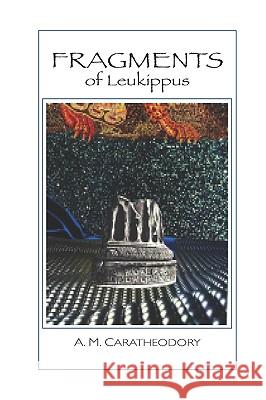Fragments: Of Leukippus » książka
Fragments: Of Leukippus
ISBN-13: 9780911385090 / Angielski / Miękka / 2006 / 58 str.
A metaphoric excavation of the thought of the shadowy Greek philosopher, Leukippus, founder of atomic theory, which forms the basis of our modern age. For Leukippus, humanness was still a part of nature, not standing in contradiction to or superior to the nonhuman world. Humanity lived by the ordinances that ruled all things; ethics was implicit. Law was nourished by natural law. Although removed from the modern conception of the physical sciences, he sought ideas capable of comprehending the world and the mind, of understanding the whole, as well as each individual. The author justifies his synthesis of thought: "Other commentators warn their readers not to see not to see modern implications in ancient speculative theories-perhaps rightly so-but there is a greater danger that, in the midst of calculation, regard for the imagination and the importance of history may suffer, and a dull, philosophical amnesia may turn our efforts in circles." The ideas of Leukippus are still meaningful today, and have implications for morality and politics, even if the terminology and the science do not fit perfectly. The author presents fragments of thought, where a part is monument to the whole thought, conveying the absence, but bringing an exhilarating presence--not really needing more. The broken format contributes a poignancy and quality of modernity that a completely reconstruction would lack. Incomplete passages, whose original context is lost, lend a mysterious quality to the fragments and invite the imagination to fit possibilities to them. The fragments present half of a dialogue that readers are free to enter; they face the same questions raised in the texts: being, time, growth and decay, love and death, language, and thought.











